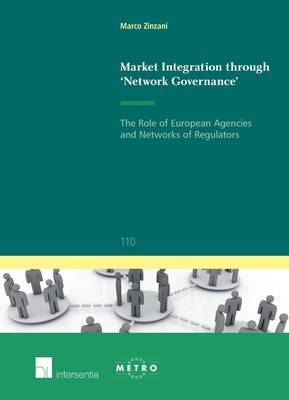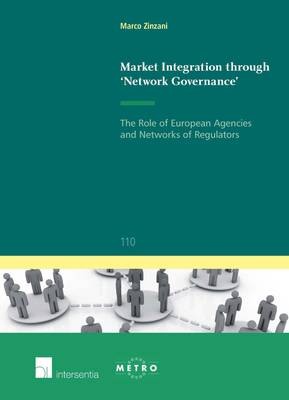
- Afhalen na 1 uur in een winkel met voorraad
- Gratis thuislevering in België vanaf € 30
- Ruim aanbod met 7 miljoen producten
- Afhalen na 1 uur in een winkel met voorraad
- Gratis thuislevering in België vanaf € 30
- Ruim aanbod met 7 miljoen producten
Zoeken
Market Integration Through 'Network Governance'
The Role of European Agencies and Networks of Regulators Volume 110
Marco Zinzani
€ 99,45
+ 198 punten
Omschrijving
This book assesses the role of EU agencies and networks of regulators from a legal perspective, thus linking the role of law to the debates on network governance. Two case studies form the core of the research: EU energy and electronic communications regulation. The institutional design of EU energy and electronic communications regulation has evolved in the last two decades. Mechanisms to encourage cooperation between national regulatory authorities have progressively been established: from loose networks of regulators to enhanced networks of regulators, and, eventually, stronger and more formal forms of coordination through European agencies or other new institutional models. In the energy field, a true 'networked' European agency has been created: the Agency for the Cooperation of Energy Regulators (ACER). In telecoms, a two-tier institutional structure has been set up: the Body of European Regulators for Electronic Communications (BEREC) and the Office. The features of ACER and BEREC clearly show the intention to institutionalize the existing networks of regulators and confer a higher status upon them, with a strengthened and recognized position in the EU. However, the transformation of regulatory networks into European agencies and other hybrid institutional network models raises concerns of legitimacy and accountability. (Series: Ius Commune Europaeum - Vol. 110)
Specificaties
Betrokkenen
- Auteur(s):
- Uitgeverij:
Inhoud
- Aantal bladzijden:
- 304
- Taal:
- Engels
- Reeks:
- Reeksnummer:
- nr. 110
Eigenschappen
- Productcode (EAN):
- 9781780681283
- Verschijningsdatum:
- 31/12/2012
- Uitvoering:
- Paperback
- Formaat:
- Trade paperback (VS)
- Afmetingen:
- 171 mm x 229 mm
- Gewicht:
- 566 g

Alleen bij Standaard Boekhandel
+ 198 punten op je klantenkaart van Standaard Boekhandel
Beoordelingen
We publiceren alleen reviews die voldoen aan de voorwaarden voor reviews. Bekijk onze voorwaarden voor reviews.











